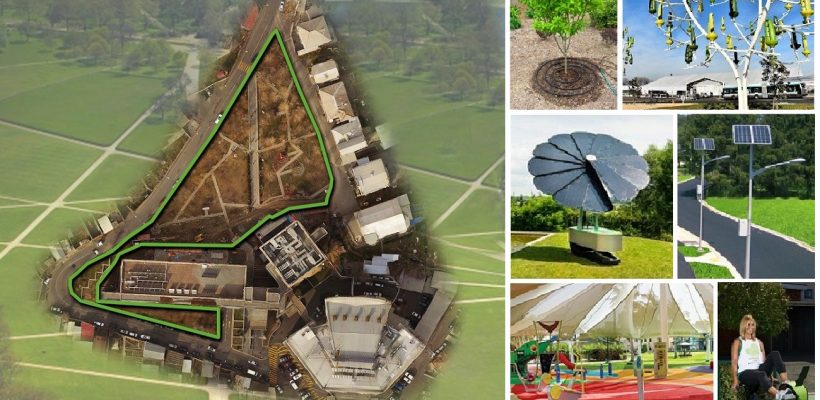
AUA Receives $752,410 USAID/ASHA Grant for its Triangle Park Project
2 min readYEREVAN, Armenia – On September 19, 2019, the American University of Armenia (AUA) received formal notice of the award of $752,410 from the American Schools and Hospitals Abroad (ASHA) program of the U.S. Agency for International Development (USAID) to transform the underdeveloped park adjacent to AUA’s Paramaz Avedisian Building (PAB) into a green, open, sustainable living lab. The Park, which covers approximately 6,040 square meters, was granted to the University in September 2017 by the Yerevan City Municipality for 25 years of uncompensated use.
The project titled “Triangle Park: A Sustainable, Smart Living Lab” aims to create a convergence space, a living-learning environment supported by cyber-physical learning tools that will expand engagement with neighborhood residents and the larger Yerevan community. The Triangle Park adds to AUA’s infrastructure enabling the University to meet its educational goals and foster technologies that support sustainable and innovative municipal initiatives. To that end, the project contains elements of construction and renovation, as well as commodity procurement, including novel equipment and enhanced care for the plants and trees in the park.
The Triangle Park project has a triangular layout but, more importantly, it creates an eco-smart space integrating three key elements: 1) curricular applications, 2) eco-smart initiatives in the domains of energy, water and biodiversity, and 3) broad community all age engagement and education. The eco-smart park will feature, for example, lighting adaptive to movement by pedestrians, cyclists and cars; stationary bikes that generate power when used; bio-recirculation; and a “weather station” to monitor precipitation, temperature, wind, relative humidity and solar radiation. In addition, the park will provide facilities for physical education courses and extracurricular activities for students and the larger community. The Park will create the opportunity and best practice for community discussions related to Yerevan’s Smart City Initiative and the design of sustainable systems in urban space.
“The Triangle Park will become a resilient, safe and educational living lab with the express purpose of engaging AUA’s students, faculty and staff, and the Arabkir neighborhood as well as larger Yerevan community in dialogue and engagement on sustainability in the public space, with application of cyber-physical systems within an urban landscape. The project is aligned with the city’s master development plan and will serve as a model in the application of robust smart city technologies in other construction projects. We are grateful to USAID/ASHA for its generous support in bringing to life this project of great importance for the city and for the University,” noted AUA President Dr. Karin Markides.
With the project’s implementation, AUA will take on a greater role in municipal and national discussions on the role and protection of the green public space, supported by smart cyber-physical systems. Special focus will be on management of energy, water, biodiversity and waste, in symbiosis with the health and happiness of people of all ages.
ASHA provides assistance to schools, libraries, and medical centers outside the United States that serve as study and demonstration centers promoting American ideas and practices. ASHA’s grants help these institutions train future leaders in a wide variety of disciplines, support local and regional infrastructure to foster development and cultivate positive relationships and mutual understanding among citizens of the United States and other nations.
Founded in 1991, the American University of Armenia (AUA) is a private, independent university located in Yerevan, Armenia, affiliated with the University of California, and accredited by the WASC Senior College and University Commission in the United States. AUA provides local and international students with Western-style education through top-quality undergraduate, graduate, and certificate programs, promotes research and innovation, encourages civic engagement and community service, and fosters democratic values.
